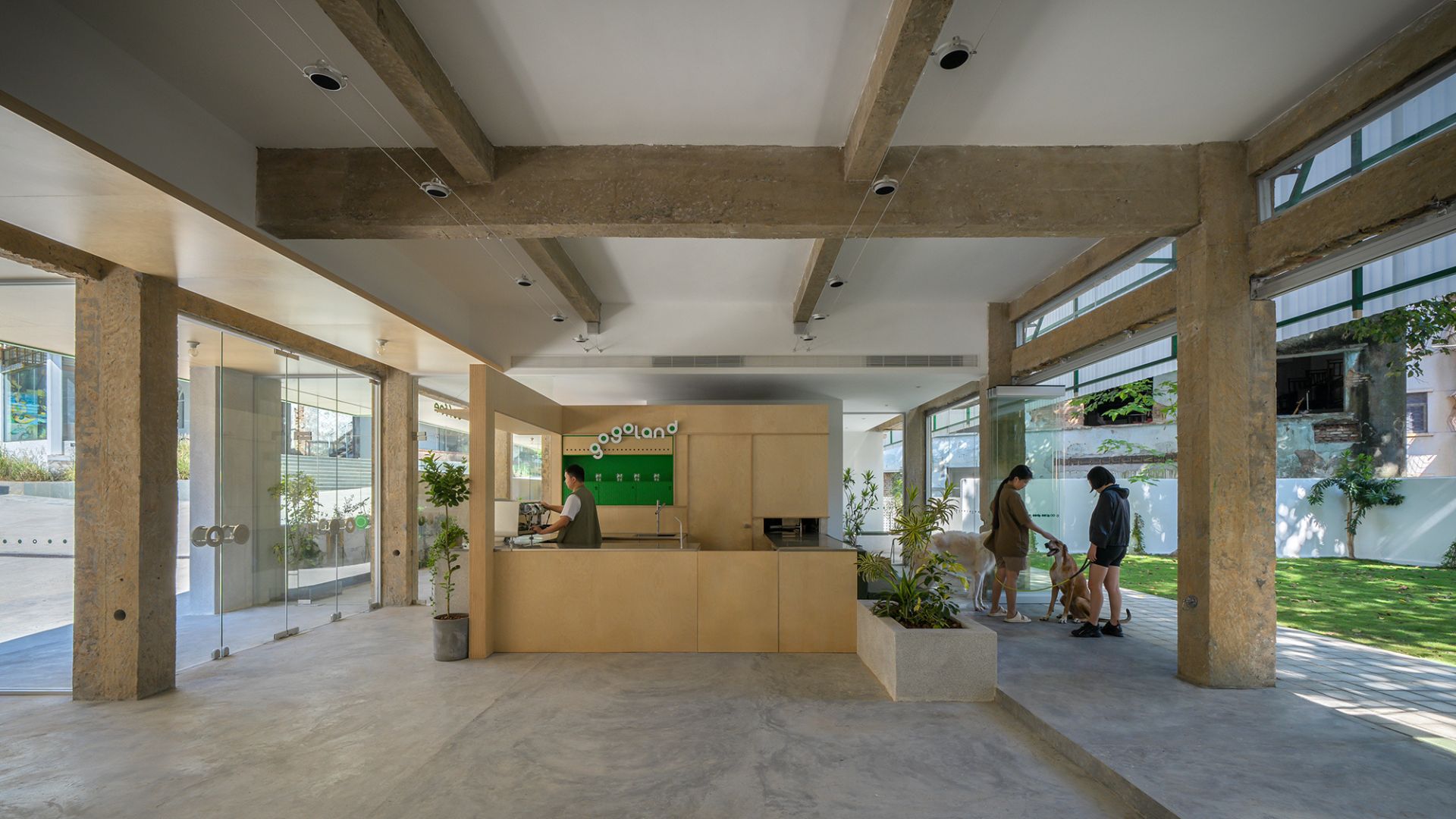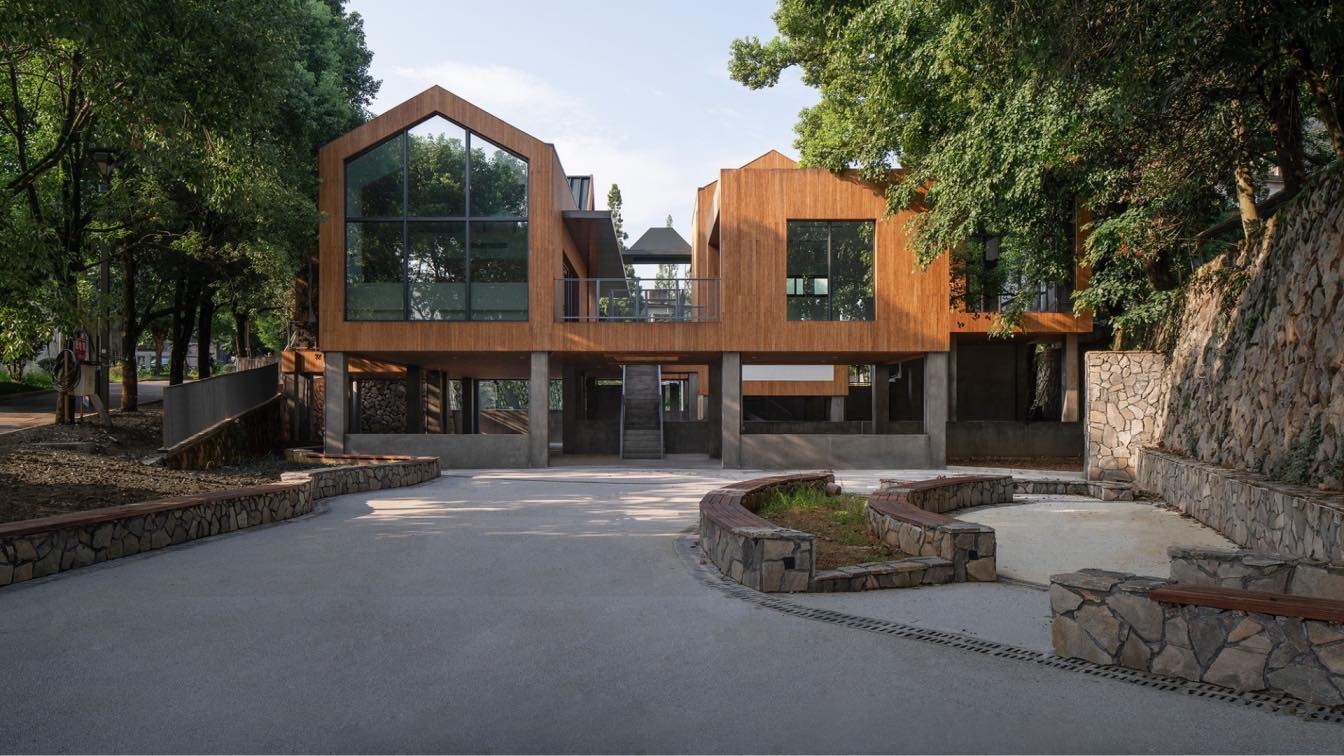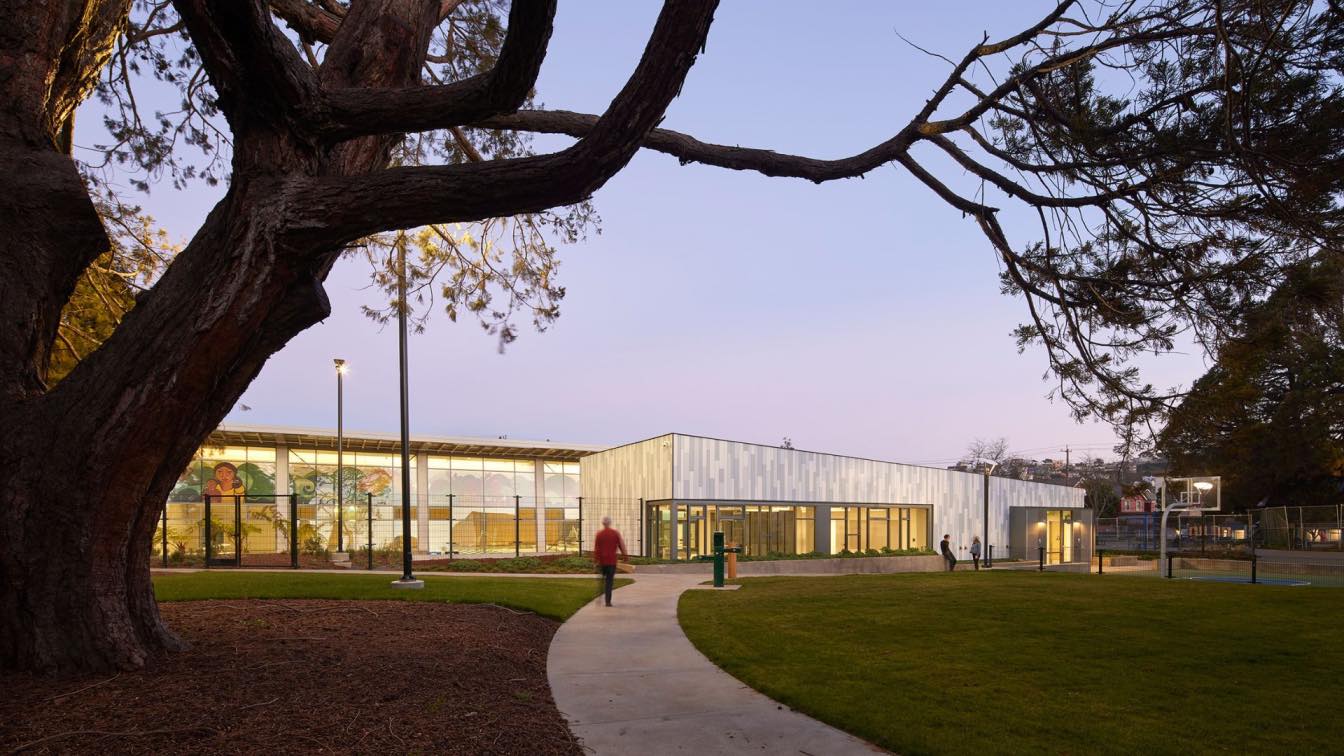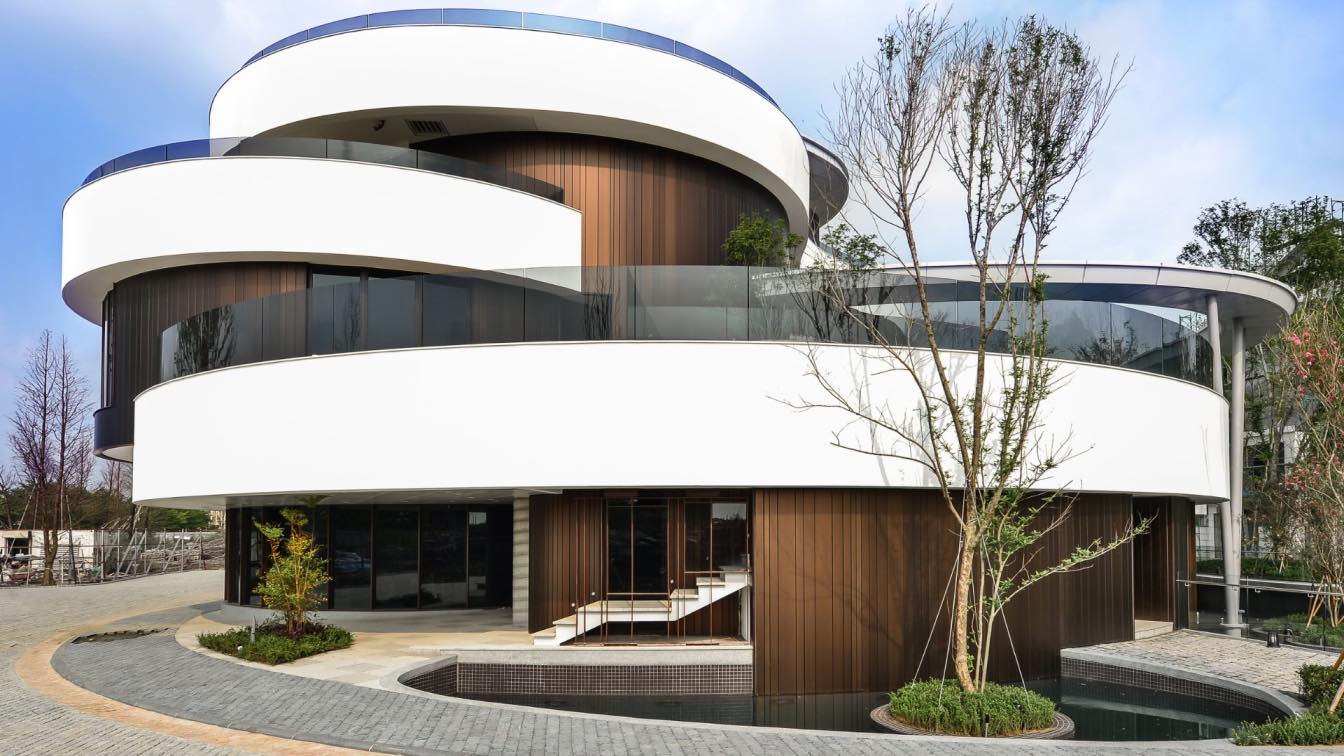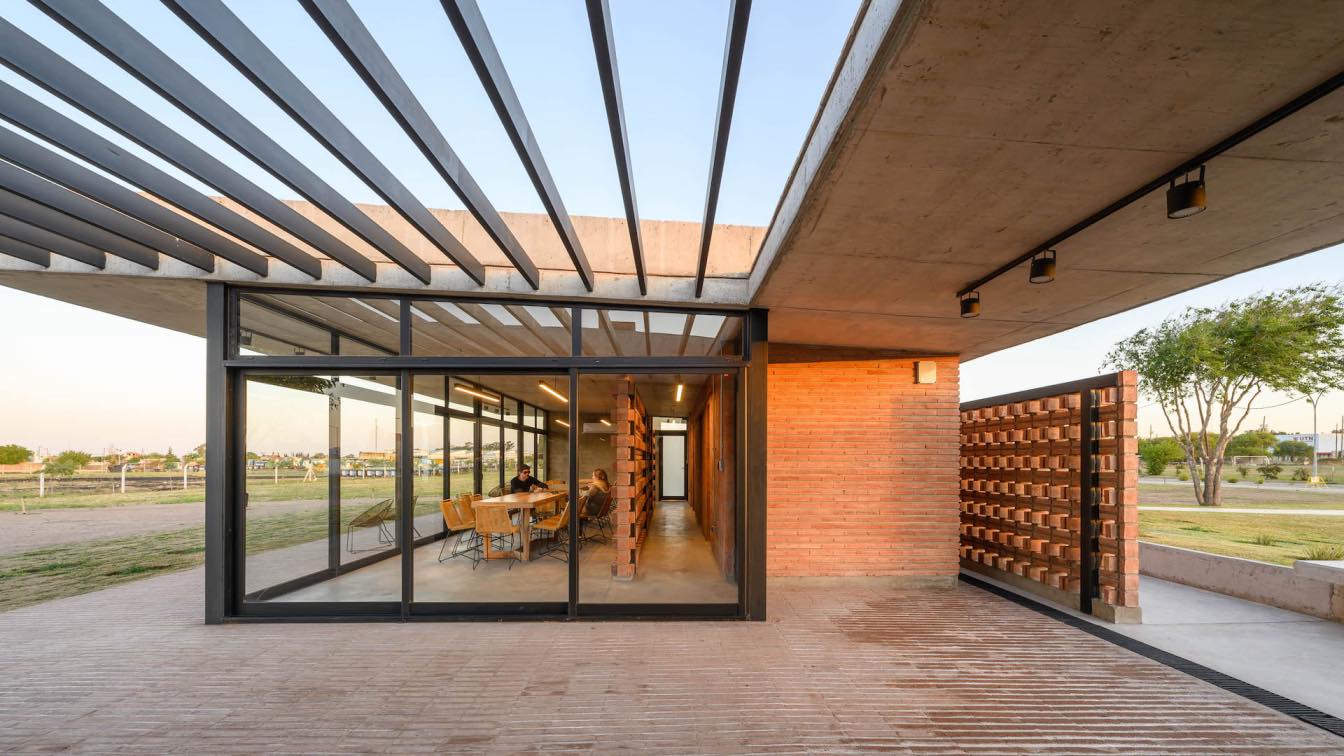go anywhere, go anytime.
Located in the Wild Island Community of Huizhou, gogoland is a pet-friendly public social space brimming with a sense of history brought by the architecture and an inviting vibe. Its unique location in the neighborhood has played a crucial role in establishing the brand. Through thoughtful design approaches, Informal Design has integrated human-pet bonding with the surrounding natural environment, resulting in a natural social space themed as a pet paradise.
1. Joyful Running with Spatial Impressions
Slight green adornments are adopted to enhance the overall ambiance of the space, echoing the vibrant brand colors scattered throughout like leaves. Starting from the touch of green at the entrance, design elements inspired by pets' paws appear throughout the space at random, symbolizing the footprints left by the joyful running of pets. Circle, as a visual symbol of the brand, becomes a design thread that connects the spaces. It is applied in various details such as door handles, corner guards, signs, and air-vent of the boarding house in a coherent way.
2. Seamless Experience of Nature & Architecture
The project is transformed from the previous dormitory building owned by a rice wine factory. It is situated amidst a cluster of old residential buildings. Following the campus' renovation, the building remained vacant for a long time, serving as a temporary parking area for electric scooters. Within the building, there is an uncovered open space, which forms a magnificent green dome together with the surrounding tall trees, providing an almost perfect natural ambiance. The design focuses on introducing natural light into the interior, creating an unbounded experiential space that seamlessly blends nature and architecture.
The building walls were demolished to create a connection between the corridor on the southwest and the courtyard on the northeast, resulting in a complete outdoor garden. The core functional rooms are set back to create a corridor that expands from the inside to the outside. By extending the ground outward, the interior space is seamlessly integrated with nature, expanding the overall building volume spontaneously.

3. Spatial Trajectory, Light & Shadow in Tow
By utilizing the gentle slope of the entrance ramp and the varying perspectives offered by the building's facade, the sight line transitions smoothly from a higher vantage point to a lower one, from a narrower view to a wider one, and from a closer distance to a farther one. This deliberate design creates a sense of ritual before entering the space, while also fostering a close connection with the surrounding neighborhoods.
The light and shadow fill the interior gently over time, creating a sense of comfort and warmth in this community space. The overhanging structure on the street-facing side extends outward, forming a semi-outdoor area that seamlessly blends with the sloping street. The inward extension of the overhang, along with the presence of bare beams and pillars, adds a welcoming outdoor ambiance to the interior.
The entrance is strategically set back to form a U-shaped foyer, which creates an iconic identity and a buffer between the entrance and the ramp. The pet social space is arranged right in front of the entrance, while the pet service area is placed on the left. To accommodate various spatial functions and the opening time, the design team has incorporated three doors around the right pillar. These doors can be opened in different combinations to cater to different operational needs, as well as the needs of pets and guests at any given time.

4. Within Function, Design Beyond the Box
All functional rooms are housed within two rectangular boxes. The independent boxes, which are connected to both the interior and exterior, contain a bar counter, a kitchen, a storeroom, and a pet hotel. Additionally, the boxes integrate a cat grooming room, a dog grooming room, a dog hairdressing room, and a pet linen room. The street-facing facade of the box is designed to function as a reception area, creating an open and inclusive community atmosphere. The surrounding area of the box remains in its previous state, maintaining its natural appearance.
The box body incorporates glass partitions to create a complete separation between the pet social space and the pet service space, while still maintaining a visual connection between the two zones. This design allows for a bright, open, and relatively independent overall space, ensuring that every room can enjoy natural light and ventilation and harmoniously integrates with the surrounding architectural and natural environments. Both ends of the pet social space are enveloped by large glass partitions and glass folding doors. When these doors are fully opened, the adjacent garden merges with the indoor activity area immediately, inviting guests and pets to explore the serene beauty of the garden and enjoy a relaxing and joyful bonding time between humans with pets while basking in the warm sunlight beneath the old trees in the courtyard.
5. Architectural Texture Wrapped in Sunlight
The existing architectural skin was preserved, complemented by the cement concrete floor and the gray pebbledash wall facing the street. The interior features a harmonious blend between the warm marine plywood wall veneers and pure white textured paint. These skillfully selected materials seem to growing from the old house, nestled among greenery and wrapped in sunlight. The natural weathering of the materials over time enhances the building texture, restoring the past appearance of the place in a harmonious manner. The building materials are presented in an authentic way, creating an elegant and simplistic ambiance.

6- Creating a Pet-friendly Ideal Space
The furniture pieces are specifically designed to create a soothing environment for pets, particularly those who are visiting for the first time. The fixed benches along the wall are supported by lamp stands, while also leaving enough space underneath for puppies to find solace and comfort in unfamiliar surroundings. The space under the benches allows for unobstructed space to play, giving pets the freedom to roam and explore. All the movable furniture pieces are meticulously designed to enhance stability. The square tables, supported by four sturdy legs, provide a sense of security for people while they work or dine there.
Additionally, the table features considerate small accessories placed at the corners, which can be used for leashing dogs if needed. The chairs are designed to resemble a cozy den, with the option to attach an acrylic box underneath for temporarily housing cats and dogs. The chairs feature specially designed accessories on the sides including dog leash holders and cup holders. The backrest of the chair is adjustable both forward and backward so that either side can be flexibly used for seating.
The space of gogoland is bright and filled with natural light, creating a welcoming and comfortable atmosphere. The design is both functional and friendly, ensuring a wonderful experience for all visitors. As a pet paradise, gogoland is dedicated to constantly exploring new ways to enhance the social lives of pets and people. It aims to provide an ideal community that caters to the needs of contemporary pets and pet owners.




















































About
In Informal Design, our ideas collide and strangely appear juxtaposed; even overlapped.
No more regular and neatly controlled methods, but changing rhythms and elusive impulses.
Consistency is eliminated and balance is broken. Another scene appears in the broad field of vision. Informal Design, founded in 2018, is a design company advocating a creative artistic atmosphere with the spirit of independence and innovation. It has a young design team full of inspiration, vision and creativity. Having been engaging in the design industry for years, the studio has accumulated rich experience in design practices.

